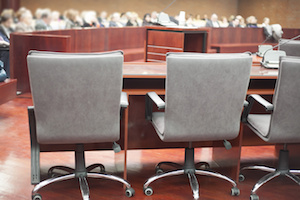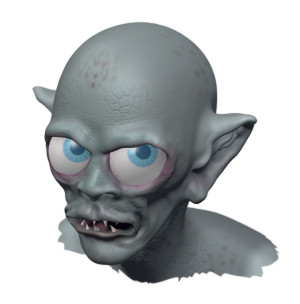Mental competency expert witnesses assisting prosecutors in California have convinced a judge that a defendant accused of murdering two Sacramento sheriff deputies is legally competent to stand trial. After a series of hearings last fall which featured disputes among expert witnesses who argued over mental competency, the long awaited murder trial of two law enforcement officers will proceed later this year.
Sacramento Man Accused of Murdering Sheriff Deputies
Luis Bracamontes stands trial for the murder of Sacramento-area sheriff deputies Danny Oliver and Michael David Davis, Jr. during a criminal rampage in October, 2014. Deputies Oliver and Davis, Jr. were murdered after responding to a call about a suspicious vehicle which turned into a deadly shootout with a male and female suspect who used an AR-15-type assault rifle to kill the two law enforcement officers and injure another deputy and a civilian before being arrested. After the incident, police identified Luis Bracamontes, a man who had twice been deported to Mexico, as the shooter and filed murder charges against him.
Before Bracamontes could face trial for murder, his attorneys demanded a competency review to determine if the defendant was legally competent to understand the charges against him and participate in his defense. Questions about Bracamontes’s mental competency intensified during a hearing in February of 2015 when he blurted out, “I did kill those cops. You can execute me whenever you’re ready” without being prompted.
Competency Hearing for Man Accused of Murdering Sacramento Sheriff Deputies
Throughout November and December of last year, Luis Bracamontes faced a mental competency hearing featuring mental health experts who debated the defendant’s mental state in front County Superior Court Judge Steve White. Attorneys for Bracamontes called psychiatry expert witnesses to inform the court that the defendant did not properly understand the nature of the consequences of his actions. Psychiatry expert witnesses who interviewed the defendant while in jail argued he did not fit the legal definition of mental competency because Bracamontes believed he was close to God that he will be saved from death because lethal injection drugs will transform into vitamins instead of killing him.
Prosecutors countered with expert witnesses who acknowledged the defendant suffered from a mental illness, but argued he understood what is going on and can participate in his own defense. The legal standard for mental competency does not depend strictly on whether or not a defendant is mentally ill, but instead focuses on if a person accused of a crime can comprehend the criminal justice process and the consequences that a conviction brings. If a defendant has a diagnosed mental illness but can still follow the legal process and understand the charges against him then a judge can determine that the mental disorder does not preclude prosecution.
In the case of Luis Bracamontes, expert witnesses for the prosecution explained to the court that the defendant’s mental illness was not so severe as to inhibit his understanding of the murder trial proceedings, and argued he was competent to face the charges.
California Man Charged with Killing Sheriff Deputies Declared Competent to Stand Trial
After hearing the expert witness testimony about Luis Bracamontes, Judge White determined the defendant was mentally competent to face murder charges for the 2014 slaying of two sheriff deputies. Although experts for the defense painted the picture of a man who embraced execution because he felt close to God, the prosecution expert witnesses – who focused on the legal standard of mental competency rather than a mental illness diagnosis – ultimately convinced Judge White to proceed with the trial as planned. After the competency ruling, Bracamontes’s murder trial is scheduled to begin in March of this year, and the defendant faces the death penalty if convicted.













